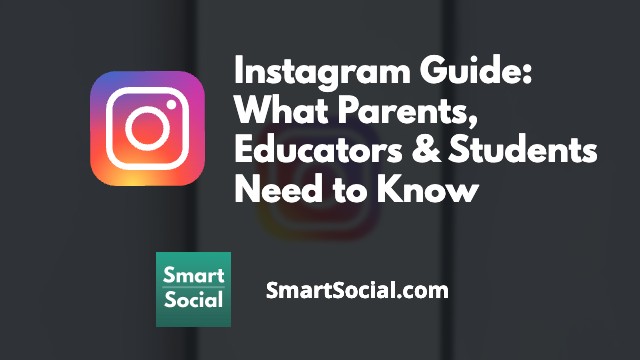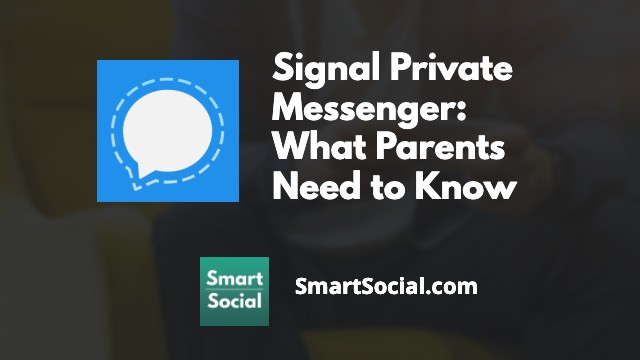Facebook Safety: How to Ensure Your Kids Are Prepared
Green Zone App
(Click here to learn more)
Dangerous Social media challenge
(Click here to learn more)
Red Zone App
(Click here to learn more)
Gray Zone App
(Click here to learn more)

With Facebook being the largest social media network in the world, it’s important for parents to teach their kids Facebook safety. In addition to Facebook’s popularity the network also happens to be in our Green Zone, which means it can have a positive impact on your student’s digital footprint when used wisely. Before giving them access to their first Facebook account, we recommend parents prepare their children for the risks, dangers, and threats that are associated with using it. So, how can parents ensure their children are prepared for their first Facebook account? We asked 5 experts to share their best Facebook safety tips.
1. Post cautiously on Facebook

Sage Singleton, SafeWise
It's essential to be savvy and cautious when posting to social media. A picture says a thousand words. Posting a photo to Facebook gives strangers a lot of information. For example, your child may innocently post a picture of their baseball team, but that photo tells people which number on the team you are, which school you go to, and who you associate with. Kids may not realize that posting a picture or updating their location status could be hazardous. Social media gives everyone, including strangers, a clear view into your world, leaving you vulnerable and exposed.
Keep Information Private - Remind your child never to give out personal information without checking with you first and caution them against taking online surveys or quizzes, as criminals can use information submitted through these formats to steal identities.
Talk About the Issue - Use language appropriate for your child’s age and development to explain the dangers of online sexual predators. Reassure your child it’s not their fault if someone they don’t know initiates inappropriate contact with them, and tell them they must make you aware of the situation immediately. Show your child how to set privacy controls on their social media accounts to help avoid dangerous contact.
Follow Their Online Activity - Another way to help your child stay safe online is periodically checking their social media accounts and other online activity and talking to them about anything that concerns you. We recommend telling your child that you will monitor their activity and talking about your expectations. Consider using an app like TeenSafe to track your kid’s web history, phone calls, text messages, and GPS location.
2. Compose an age appropriate contract of mutually agreed upon Facebook safety rules

Dr. Kimberly Williams, Pediatric Neuropsychologist and Clinical Psychologist
Parents always ask, how do I Facebook Proof my child? They are worried about child predators, the privacy of their home, and cyberbullying. I explain that Facebook is a Rite of Passage for the child. Parents and their children should come together and compose an age appropriate contract of mutually agreed upon rules. For instance outline what is considered appropriate content, safe friending (you can't friend anyone who you've never met in person), and no revealing or provocative posts. One non negotiable rule is that parents must have the login information. Kids don't have to friend their parents, but they must know parents can randomly check content. I ask parents not to nitpick every comment or photo. As long as kids follow the contract, parents shouldn’t hassle their kids. This plan may need tweaking for each family, but it establishes rules and helps a child earn trust from their parents.
3. Empower teens by giving them the tools to protect themselves online

Thea Dodds, Farm & Wilderness
One often-overlooked tip for smart and safe Facebook use is to unplug. Kids need extensive experience in the off-line world to learn their own strategies to be safe and smart on social media. We’re not always going to be there to protect them, so they need tools to protect themselves. At Farm & Wilderness summer camps and teen programs we teach life skills in a fun, supportive and unplugged summer community.
4. Enlist a younger and cooler family member

Kate Stead, Old Mate Media
Kids are always reluctant to listen to their own parents. As a child or tween it feels impossible that your uncool parents could possibly have any understanding of the world that you live in and the things that are important. This is something that hasn't changed across time. However, kids will be much more likely to have a upfront conversation with someone else who is closer to their own age and not in the parental zone, but is still more worldly and cool. Younger aunts or uncles are fantastic for this, but also older cousins, your neighbors’ older children, or even the neighbors themselves if they are younger. Oftentimes, the advice will be much more effective coming from someone else.
5. Don’t share photos that you wouldn’t want your parents see

Emma Monks, Crisp
Personal information is like a jigsaw puzzle, the more little bits teens give out the more others can piece together a complete picture about them. If their Facebook profile shows their location, and they mention a favorite park or their school’s name, some people may use this to bully or worse, locate them. Teens should never share photos of themselves that they wouldn’t let their parents see. Before posting a photo of a friend, always get their permission. After all, they wouldn’t be happy if a friend shared a photo of them that they didn’t like.
Protect your family and enter for a chance to win cool prizes
Become a member or log in to learn more on this topic
Protect your family and enter for a chance to win cool prizes

., start learning from this page to earn points!*
Hello, I'm Josh, the founder of SmartSocial.com.
Don't leave this page until you fill out our feedback form that will appear after you learn from the resources...
Become a Very Informed Parent (VIP) to get our social media suggestions in your email every Tuesday & Thursday.



Hello, I'm Josh, the founder of SmartSocial.com. Protect your family by taking my 1 minute quiz
This quiz will help you understand how safe your family is


Schools & Districts: Partner with us to protect your community online
Our remote presentations (and website) teach over a million parents and students each year how to be safe so they can shine online. We teach students how their accounts can be used to create a portfolio of positive accomplishments that impress colleges and employers.


Join Our Smart Social Podcast
each week on iTunes
With over 500 episodes, Josh Ochs interviews psychologists, therapists, counselors, teachers, and parents while showing you how to navigate social media to someday shine online.
Listen on:



.jpg)



.jpg)


